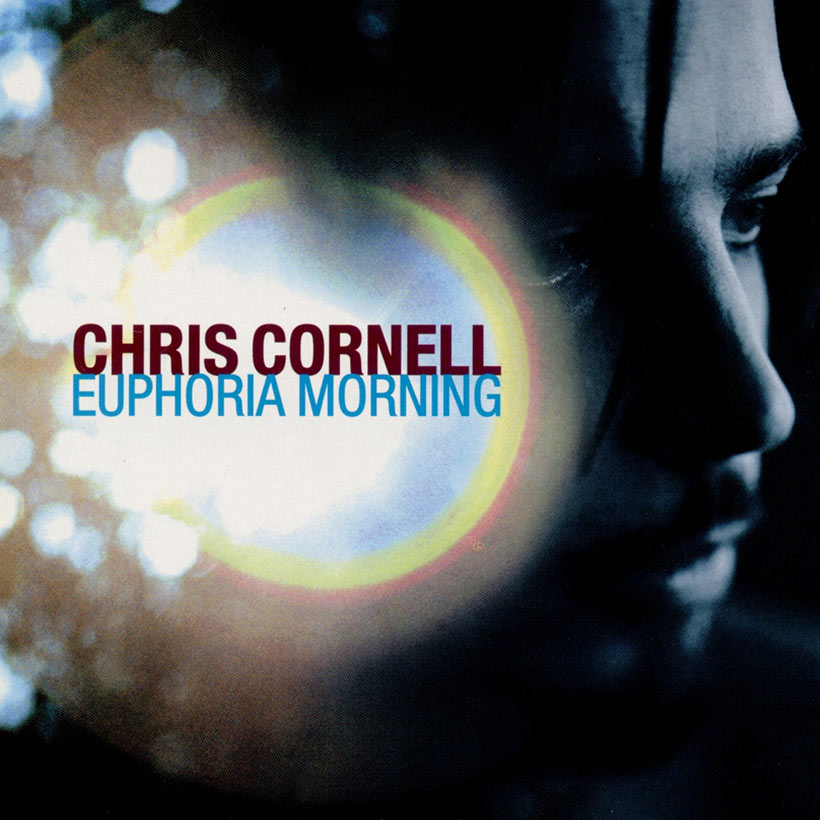Superficially, Chris Cornell’s solo debut album, Euphoria Morning (later reissued as Euphoria Mourning), ticked all the important boxes. Widely accepted as an artistic triumph by the critics, it peaked inside the Top 20 of the Billboard 200 and its signature single, “Can’t Change Me,” received a Grammy nomination. Yet the album’s slow-burning success belied the fact that its creation was a cathartic experience for the former Soundgarden vocalist.
Listen to Euphoria Morning now.
Having fronted that band for a decade, Cornell had been in the eye of the hurricane when grunge made his Seattle hometown the coolest city on the planet during the early 90s. Soundgarden’s landmark fourth album, 1994’s Superunknown, sold over nine million copies worldwide and skyrocketed the group to stardom. A sprawling and introverted affair, their fifth album, Down On The Upside, had plenty to recommend it, but didn’t have the impact of its predecessor. After a grueling world tour in support of the album, exhaustion and internal strife led to Cornell and company announcing their split in the spring of 1997.
The iconic frontman’s initial post-Soundgarden days proved difficult. Believing a solo career could be a viable option, Cornell stockpiled songs for what became Euphoria Morning, but, as he reflected in an interview with Rolling Stone’s Rod Yates, in 2015: “It was a pretty dark album lyrically and I was going through a really difficult time in my life.”
Nonetheless, Cornell soon turned a corner, and he chose wisely when recruiting the collaborators needed to realize his solo debut. For his first lieutenant, Cornell turned to Alain Johannes, a well-respected LA-based musician with a CV that included stints with Red Hot Chili Peppers spin-off bands Eleven and What Is This?, and dexterous multi-instrumental skills which later led him to work with Them Crooked Vultures and PJ Harvey. Johannes, in turn, brought along his wife, Eleven’s keyboardist Natasha Shneider, and several other key players including Guns N’ Roses/Devo drummer Josh Freese.
Between them, Cornell and his talented team crafted a record rich in diversity and which adroitly straddled beauty and darkness. Musically, nothing was off-limits, with the band relishing the challenge of perfecting everything from prowling post-grunge rockers (“Mission,” “Pillow Of Your Bones”) to the James Carr-esque Southern soul of “When I’m Down,” while Johannes adorned the tracks with all sorts of unlikely sonic embellishments, including the woodwind serenade framing “Disappearing One” and the Mellotron and mandolins that powered the shape-shifting folk-rocker “Follow My Way.”
Responding in kind, Cornell nailed a series of outstanding vocal performances for Euphoria Morning. Coaxing out reserves of strength and vulnerability, he simply soared on “Preaching The End Of The World” and the wracked ballad “Steel Rain,” while his staggering falsetto floated in and out of “Wave Goodbye”: a tender and suitably acrobatic elegy to the late Jeff Buckley. “Can’t Change Me,” however, delivered the album’s eureka moment, with a killer melody, dashes of The Beatles circa Abbey Road, and yet another majestic Cornell vocal all aligning to perfection during a transcendent three-minute blast of guitar-driven pop.
Released by A&M on September 21, 1999, Euphoria Morning was soon hailed by the critics, with Rolling Stone declaring that “Cornell, Johannes, and Shneider have woven a formidable delicacy and intricacy into each song.” The album also made its mark commercially, peaking just outside the UK Top 30 and at a highly respectable No.18 on the Billboard 200, on the way to moving close to half a million copies.
Supported by the core of his studio band, Chris Cornell’s subsequent six-month tour suggested he’d laid all the groundwork he needed for a successful solo career. Fate, however, conspired to intervene. When Cornell next returned to the upper echelons of the charts, in the early 00s, he was at the helm of his incendiary new band Audioslave’s hit-stuffed eponymous debut.




